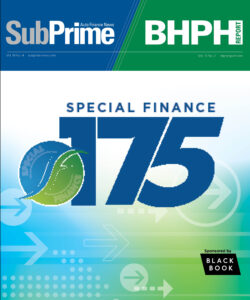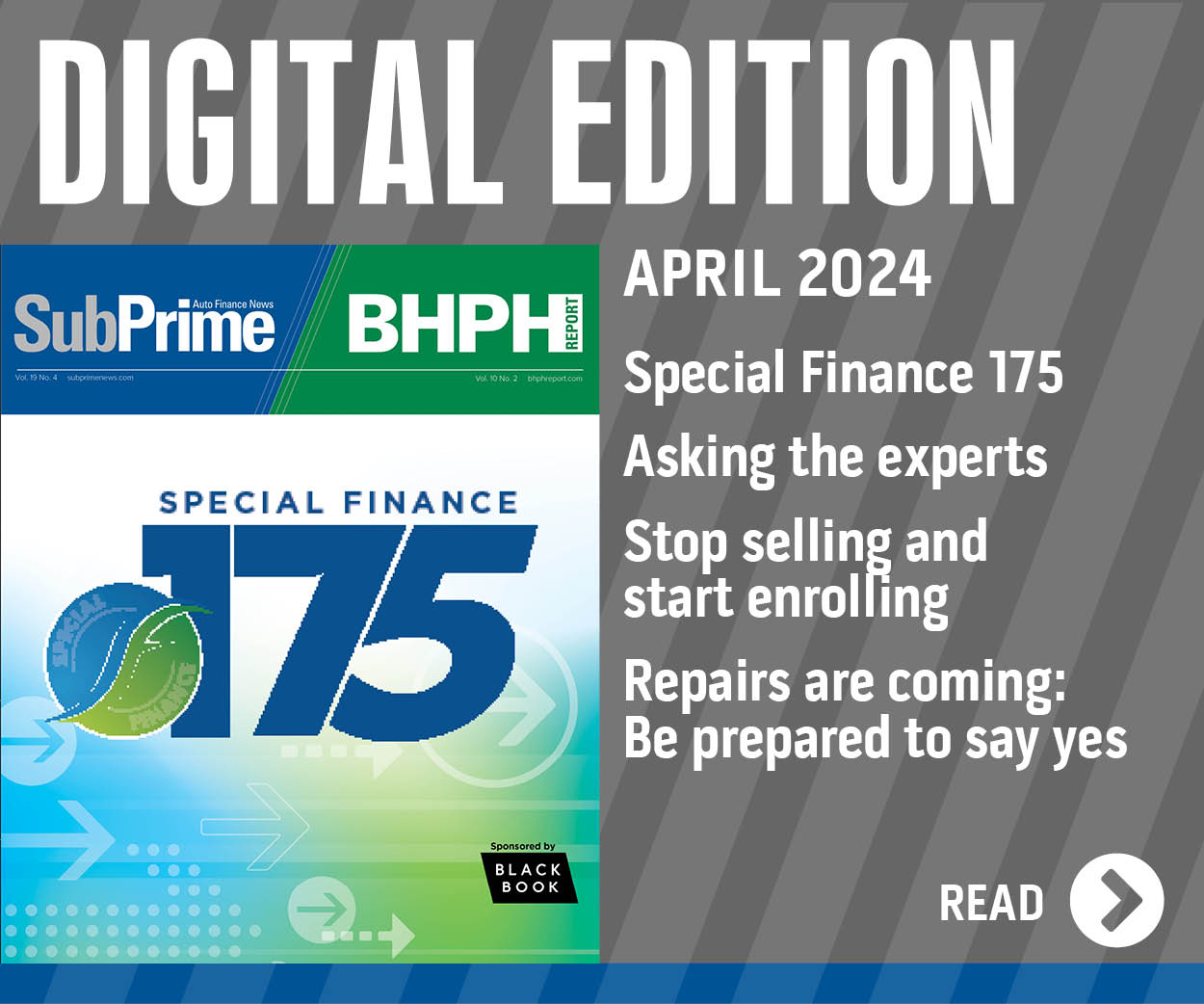Despite some tighter underwriting subprime to see ‘new entrants’

Perhaps underwriting standards aren’t quite as relaxed now as they might have a been a few quarters ago, but Fitch Ratings still is expecting to see “new entrants” into subprime auto financing during the near term.
Along with touching on subprime, Fitch’s latest auto loan asset quality report highlighted a pair of other auto financing trends, including strong U.S. auto loan performance and fewer commercial banks easing underwriting terms.
While underwriting terms remain eased relative to historical standards, Fitch recapped that recent Federal Reserve senior loan officer survey data showed that just 3.3 percent of net respondents eased underwriting standards in the second quarter of 2015. This level is down from 14 percent of net respondents who eased standards in the July 2013 survey.
“Although Fitch views this positively, as long as terms continue to be relatively relaxed, newer loan vintages will continue to underperform earlier ones, eventually leading asset quality to revert to historical averages over the medium term,” analysts said.
Fitch contends that an improving employment picture, steadier economic conditions and falling gas prices are contributing to “robust” vehicle sales. The report mentioned that these same factors could push new-vehicle sales in the U.S. to break 17 million units for the first calendar year since 2001.
“Fitch believes that high levels of competition between major auto lenders will still result in further easing of terms, lower FICOs and new entrants into subprime lending over the near term, despite the decreased pace of easing,” analysts said.
As will be part of the conversations during the SubPrime Forum coming up at Used Car Week in November, the Fitch report went on to note that auto loans are expected to remain one of the faster growing asset classes for U.S. banks and other financial institutions.
Analysts also pointed out the July Fed loan survey showed that over second quarter of this year, loan officers seeing an increase in auto loan demand exceeded those seeing decreases by a margin of 18 percent.
“Macroeconomic factors that correlate with auto loan performance, such as unemployment, also point to the market remaining robust,” analysts said.
“That said, competitive underwriting conditions, combined with potential future pressure on auto residual values and consumers' ability to continue to service their personal debt obligations in a rising rate environment, could push the market toward weaker asset quality over the medium term,” they continued.
Currently however, despite competition, Fitch highlighted that U.S. auto finance companies are still enjoying generally strong asset quality through the first half of the year.
Year-over-year performance for the top nine Fitch-rated auto finance companies was “mixed.” Analysts indicated that performance reflected the continued easing of underwriting standards, higher subprime finance and a decline in used-vehicle values in recent periods.
However, Fitch noted prime loans saw improvements that were attributable to better consumer discretionary spending, “a seasonal effect typical in the first half of the calendar year following year-end consumer spending surges,” according to analysts.
Fitch's prime auto ABS index performance remained “solid,” while Fitch's subprime auto ABS index experienced a 47-percent increase in annualized net losses to 5.44 percent in second-quarter 2015. Nonetheless, the subprime auto loan index still remains well below peak recessionary levels in late 2008 to early 2009.
The top nine Fitch-rated auto lenders, including captives, held about $473 billion of auto loans at the end of June. Of the nine, Fitch pointed out only General Motors Financial and Capital One Auto Finance have any meaningful subprime exposure in their loan portfolios.
A discussion about companies such as GM Financial and Capital One is on tap for the SubPrime Forum panel session titled, “Soaring in Subprime.”
Barrett Teague, vice president of lender solutions at Black Book, will moderate a candid conversation featuring top subprime auto finance lending executives aimed at gathering perspective and C-level opinion on the key foundations of the subprime market and what their companies see as opportunities and challenges.
That panel and more is on tap for the SubPrime Forum, which is part of Used Car Week that runs from Nov. 16-20 at the Phoenician in Scottsdale, Ariz. Agenda details, links to registration and accommodations along with a downloadable list of executives who have already made the decision to attend can be found at www.usedcarweek.biz.

 View The Latest Edition
View The Latest Edition

